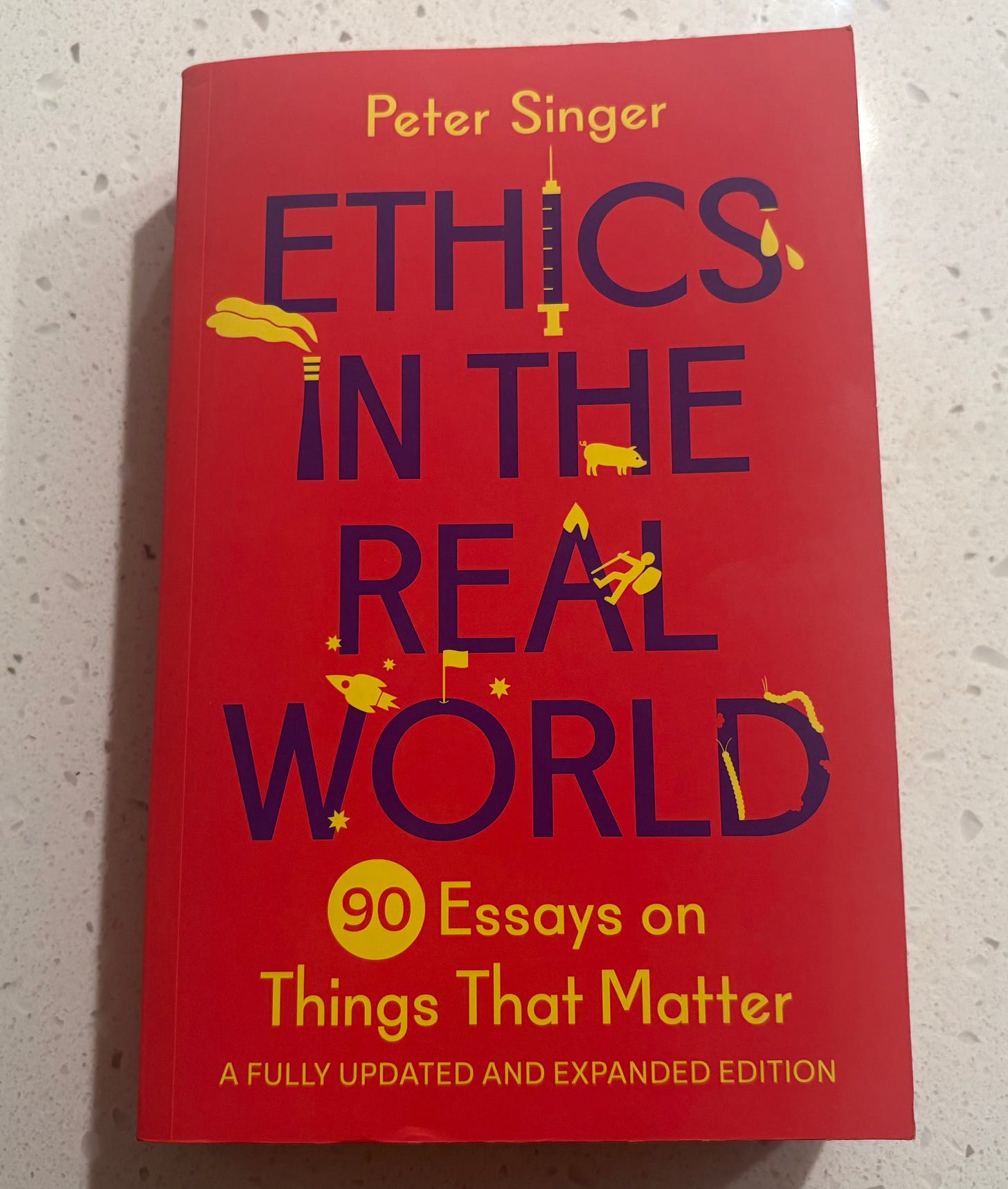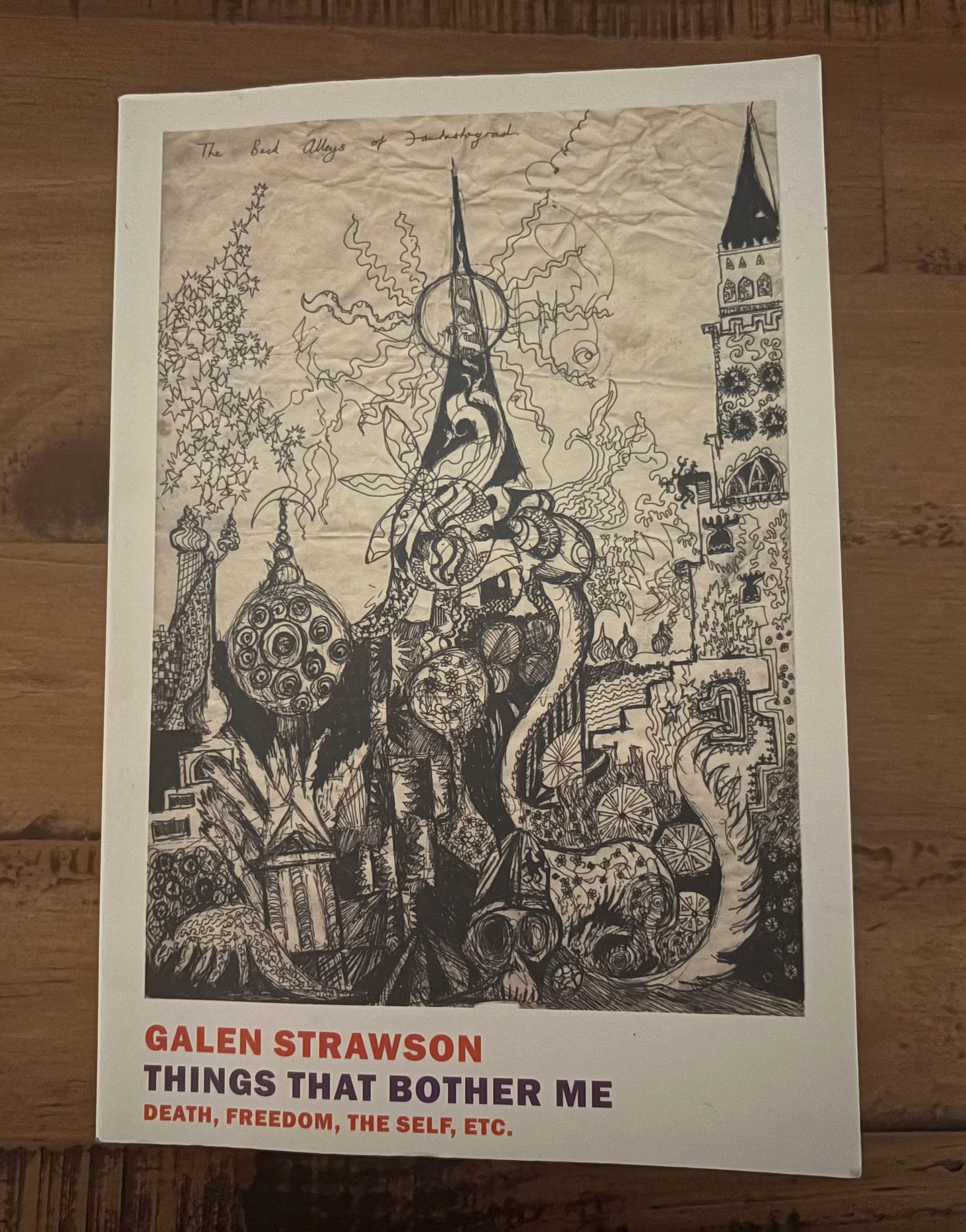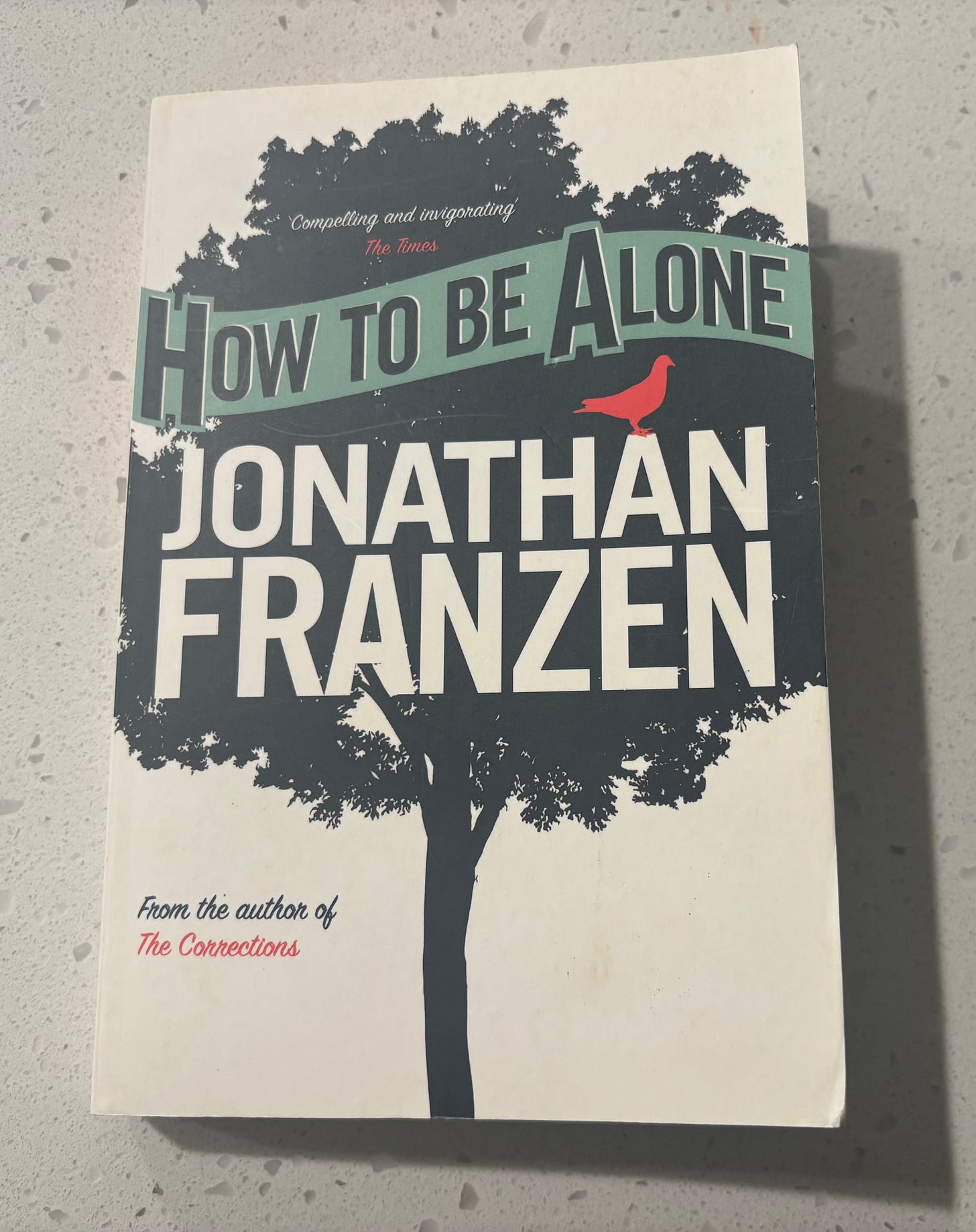five top things i’ve been reading (twenty-ninth edition)
the latest in a regular 'top 5' series
Ethics in the Real World: 90 Essays on Things That Matter, Peter Singer
Things That Bother Me: Death, Freedom, the Self, Etc, Galen Strawson
Would it be constitutionally improper for the House of Lords to block the Assisted Dying Bill?, Mark Elliott
Erika Imports, Jonathan Franzen
Revolutions: Art from the Hirshhorn Collection 1860-1960, Hirshhorn Museum
This is the twenty-ninth in a weekly series. As with previous editions, I’ll move beyond things I’ve been reading, toward the end. This week’s edition will be shorter than usual though, because I’m in the middle of writing a long piece about freedom I’ll publish here in the next day or two..
1) A few years ago, I read and enjoyed an early edition of Peter Singer’s collection Ethics in the Real World. This weekend, I read some of the essays that are new to the 2023 edition, grouped together under the heading The Future. These essays address topics ranging from living forever to robot rights to colonising outer space. As is typically the case with Singer’s short popular philosophy, they’re extremely clearly written and argued. If I’m being blunt, what they lack in complexity and originality, they more than make up for as neat little primers. And it’s admirable that you often have to go looking for it to spot the sickening Singerite reasoning gently pushing through what otherwise are relatively neutral takes.
So, if you know a young teenager who’s getting into philosophy, give them this book! Do warn them, however, that the examples and side-comments will feel amusingly dated. After all, these essays were written in an ancient time — a whole couple of years ago! — when Singer felt the need to provide a short clarificatory biography on mentioning Elon Musk, and some conservative caveats to the idea AGI might only be decades away.
2) Yesterday, I finally got round to reading some of Galen Strawson’s Things That Bother Me: Death, Freedom, the Self, Etc (2018). I’ve had a copy for several years, and I quite like the title. (I also recently enjoyed reading two interviews with Strawson, by J.P. Andrew.) There’s plenty of interest in this book, from novel claims about the makeup of the self, to the account of a teenage trip from Isfahan to Tehran which you’ll find in the midst of a surprisingly detailed memoir chapter for someone who repeatedly claims to have such a poor autobiographical memory. But the style just doesn’t do it for me.
The argument I enjoyed the most, however, is his argument against the “fluency” of conscious experience. “Thought has very little natural continuity or experiential flow”, Strawson tells us, “if mine is anything to go by”. This points up an annoying feature of the book: the way in which Strawson often treats his own experiences and insights as highly generalisable while also revelling in holding counterintuitive positions on overlapping matters. He then goes on to quote several different voices from Joyce’s Ulysses to back up his claim about a lack of experiential flow, whereas I’d rather he made more of a philosophical argument. Nonetheless, he made me take this idea more seriously than I have before, and I’m thinking about it still (or again, as he might prefer).
3) Last week, momentous votes were held in the UK House of Commons on the matters of assisted dying and abortion. The piece I’m currently in the middle of writing is about the relation of the outcome of these votes to the furthering of individual freedom. As part of thinking about all this, I valued reading Mark Elliott’s recent blog piece, Would it be constitutionally improper for the House of Lords to block the Assisted Dying Bill?. Elliott discusses the reasons you might assume this kind of Lords action to be improper, and the reasons those assumptions would be wrong. Crucial here, he explains, is recognising that the bill is not a government bill. As you’ll know if you’ve been following the UK assisted dying debate, there’s been much made of the fact that, instead, this bill is a private member’s bill — and the ways in which that’s proven expedient for its supporters. Not necessarily so in the Lords, it seems.
4) Erika Imports (2002) is a short essay about the time Jonathan Franzen spent, during high school, working for a small local family business. I love all of Franzen’s novels, and think he’s a genius of fiction. I don’t always like his essays so much, but Erika Imports is really excellent. Its title reminds me of an old factory in North London, near where I once lived, which is emblazoned with the wonderfully multiply ambiguous name ‘Rosemary Works’. The essay’s content is classic Franzen. Straightaway, you’re into the overly-detailed world of a German-American working household, with Franzen trapped in the basement sealing cartons with a wet sea sponge, while his bosses lounge around upstairs eating cake and drinking cheap Riesling. By the end — not quite four pages! — you want the novel.
5) On Juneteenth, I went with some friends to the Hirshhorn Museum. I’d been intending to go since I moved here — to see both the art and the architecture — and it was even better than I’d hoped. I liked the Banksy/Basquiat rooms more than I’d expected. But I particularly enjoyed the Revolutions exhibition, which features star pieces from the museum’s collection of works from the period 1860-1960. My favourite things were the wall of portraits by Winslow Homer and Thomas Eakins, the Joseph Stella industrial paintings, Castera Bazile’s Boy Sketching, and Milton Avery’s Sally and Sara. I also enjoyed the pictorial legends displayed near the tables full of sculptures.









